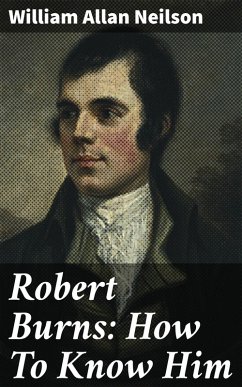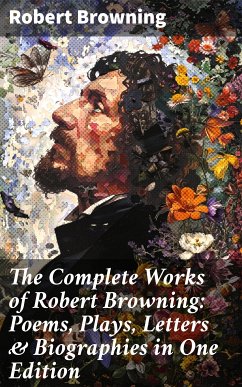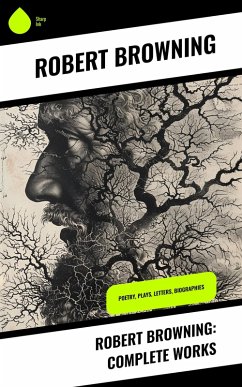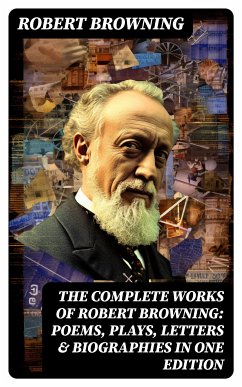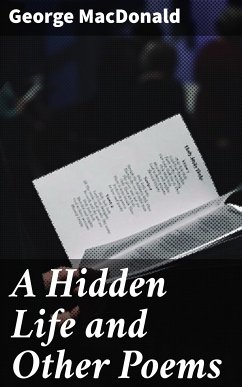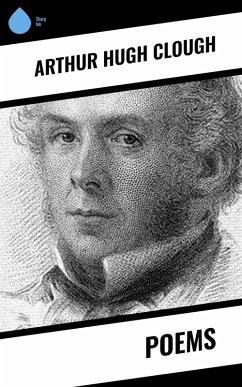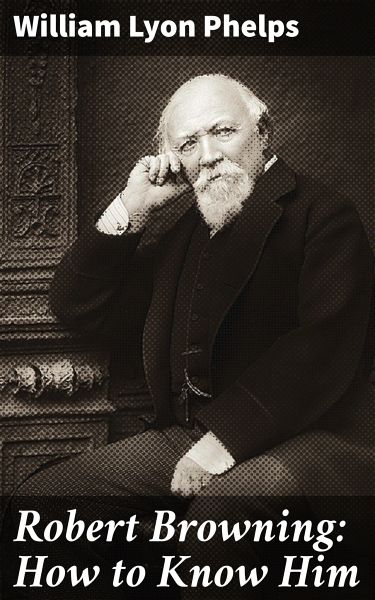
Robert Browning: How to Know Him (eBook, ePUB)
Enriched edition. Exploring the Genius of Victorian Poetry
Kommentar: Lane, Alex / Redaktion: Good Press
Versandkostenfrei!
Sofort per Download lieferbar
1,99 €
inkl. MwSt.
Weitere Ausgaben:

PAYBACK Punkte
0 °P sammeln!
In "Robert Browning: How to Know Him," William Lyon Phelps offers an insightful exploration into the life and works of the celebrated Victorian poet Robert Browning. Phelps employs a clear and engaging literary style, seamlessly merging biographical details with an analytical examination of Browning's poetry. Through close readings of pivotal works such as "My Last Duchess" and "The Ring and the Book," Phelps elucidates the thematic complexities, innovative forms, and psychological depth that characterize Browning's artistry, all while situating the poet within the broader context of Victorian...
In "Robert Browning: How to Know Him," William Lyon Phelps offers an insightful exploration into the life and works of the celebrated Victorian poet Robert Browning. Phelps employs a clear and engaging literary style, seamlessly merging biographical details with an analytical examination of Browning's poetry. Through close readings of pivotal works such as "My Last Duchess" and "The Ring and the Book," Phelps elucidates the thematic complexities, innovative forms, and psychological depth that characterize Browning's artistry, all while situating the poet within the broader context of Victorian literature. William Lyon Phelps (1865-1960), a renowned literary critic and professor, was deeply invested in both the educational and emotional impacts of literature. His tenure at Yale University and his notable contributions to literary criticism inform his approach in this work, as he seeks not merely to inform but to resonate with readers emotionally. Phelps's dedication to making literature accessible reflects his belief in its transformative power; he saw Browning not only as a poet but also as a profound commentator on the human experience. Recommended for both scholars and general readers, Phelps's examination of Browning is an essential guide for anyone seeking to appreciate the intricacies of Browning's poetry. This book serves as a key to unlocking the rich emotional and intellectual layers of Browning's work, compelling readers to engage deeply with the text and the human psyche it portrays. In this enriched edition, we have carefully created added value for your reading experience: - A succinct Introduction situates the work's timeless appeal and themes. - The Synopsis outlines the central plot, highlighting key developments without spoiling critical twists. - A detailed Historical Context immerses you in the era's events and influences that shaped the writing. - A thorough Analysis dissects symbols, motifs, and character arcs to unearth underlying meanings. - Reflection questions prompt you to engage personally with the work's messages, connecting them to modern life. - Hand-picked Memorable Quotes shine a spotlight on moments of literary brilliance. - Interactive footnotes clarify unusual references, historical allusions, and archaic phrases for an effortless, more informed read.
Dieser Download kann aus rechtlichen Gründen nur mit Rechnungsadresse in A, B, BG, CY, CZ, D, DK, EW, FIN, F, GR, H, IRL, I, LT, L, LR, M, NL, PL, P, R, S, SLO, SK ausgeliefert werden.




